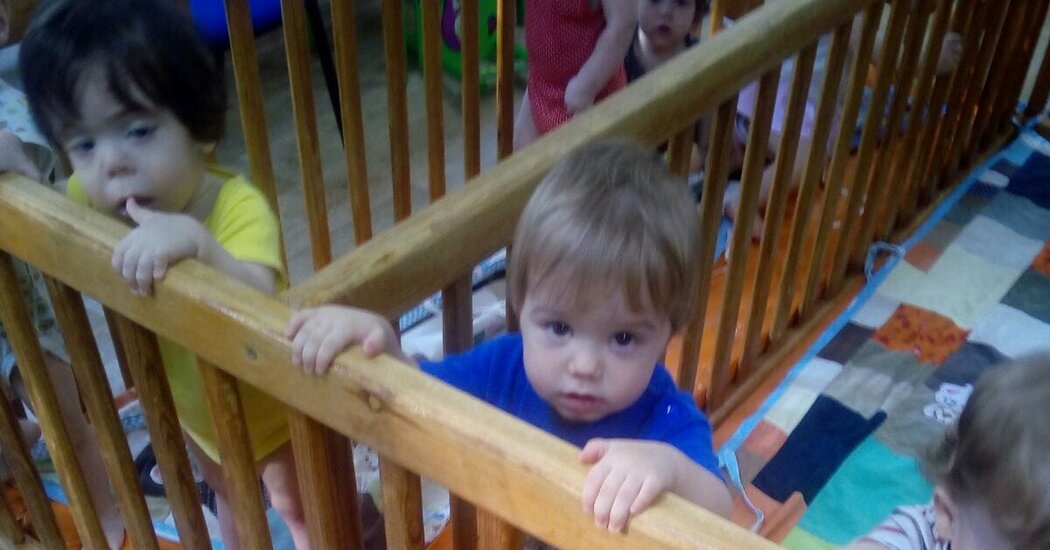“Navigator,” the man who had ordered the children to be removed from the church, repeatedly visited the foster home. He would later be identified as Igor Kastyukevich, a member of the Russian parliament from Putin's political party, United Russia.
Anna Kuznetsova, deputy speaker of the Russian parliament and Ms. Lvova-Belova's predecessor as commissioner for children's rights, traveled from Moscow to deliver baby products on behalf of the party. “#WeDon'tAbandonOurOwn,” she wrote on Telegram, using a pro-war hashtag to suggest the children belonged to Russia.
In interviews with the Times, Russian officials echoed this view, saying the Kherson children were Russian.
In May, Putin fulfilled his promise to Ms. Lvova-Belova by issuing a presidential decree easing citizenship requirements: in Kherson and other occupied regions, Ukrainian health workers could now apply for Russian citizenship on behalf of adopted children and Ukrainian orphans.
The decree also sped up the process so that children could become Russian citizens in 90 days or less, rather than five years.
The following month, Ms. Korniyenko, the director of the foster home, was summoned to the Ministry of Health in Kherson, now run by the occupation authorities. A Russian-backed official asked her to remain the director, but under her supervision. She was even offered a Russian passport.
But Ms. Korniyenko refused. She had had enough of the occupiers who, she said, intimidated staff by asking them their political opinions in a test of loyalty and carried weapons while monitoring children.
Dr. Lukina also resigned. She cared about the children, but she wanted no role in what Russian-backed officials might do to them.
“I wanted no part of it,” he said. “And I was afraid they would take me away too.”
Looking for a new director, the employment authorities turned to Dr. Tetiana Zavalska, a pediatrician at the foster home who often worked night shifts and weekends. She was sympathetic to the new occupying administration and made her pro-Russian views clear.





